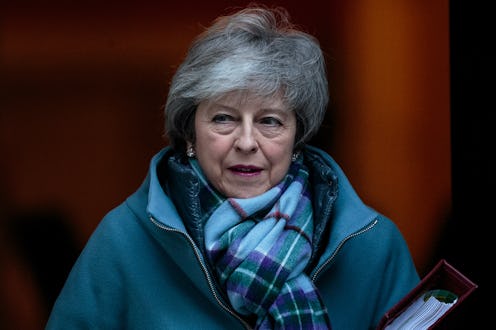
Almost three years ago, British citizens voted to leave the European Union (EU). However, the terms of that separation have yet to be established. When the next Brexit vote happens next month, onus will be on UK lawmakers to approve a proposed deal or else face down the prospect of potentially leaving the EU without a plan.
Although UK voters decided to leave the EU as part of a 2016 referendum, the exit itself is not so straightforward. In many ways, EU countries enjoy symbiotic relationships with one another, and when one group opts out of that dynamic, there is bound to be a series of ripple effects.
According to the Brexit decision, the UK is set to leave the EU on March 29, with or without an agreement to help make that separation go smoothly. But while UK interests are at stake, there has been difficulty rallying enough members of Parliament around proposed exit deals.
Prime Minister Theresa May had planned to hold a vote on the most recent agreement as soon as this week, but CNN reports that she has postponed that next vote until March 12 — just 17 days before Brexit is officially set to happen. If no deal is reached, UK lawmakers will have to decide whether or not to support extending the March 29 deadline, and it's unclear whether or not they ultimately would.
The March 29 separation date is part of Article 50, which according to CNN dictates the formal process for the UK's exit from the EU. If the Brexit date were to be pushed back, it would require May approaching EU leadership in Brussels. Representatives from the remaining EU countries would then have to unanimously approve her request. (Reports have suggested that EU members would approve an extension, if they were asked for one.)
There is a series of loose ends that would stand to impact UK citizens immediately if an exit deal is not reached. Because of how intricately tied EU countries are, both in policy and geography, UK citizens would potentially have to deal with altered driving restrictions, changes to how they can access health care across the EU, and new visa applications requirements for short, intra-European travel, according to a detailed report by The Guardian. That's to say nothing for larger economic questions, such as how trade between the UK and the EU might look like once their ties are formally severed. These are the types of quandaries that stand to be addressed by a comprehensive exit agreement, if one is ever reached.
So far, Parliament has turned down proposed exit deals. And it hasn't been close. In January, a proposed Brexit deal failed by more than 200 votes, which the BBC reported was the largest vote failure in UK government history. It's not clear what will happen during the March 12 vote, if it should take place as is currently planned. What is clear is that the UK government appears to remain incredibly divided about how — and when — Brexit should be handled.